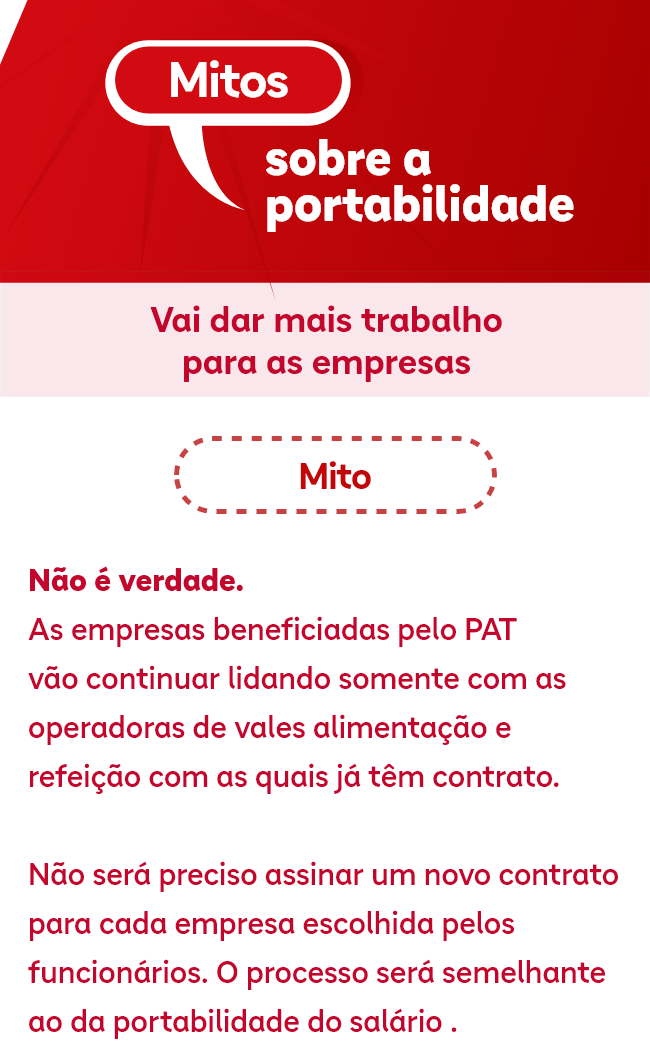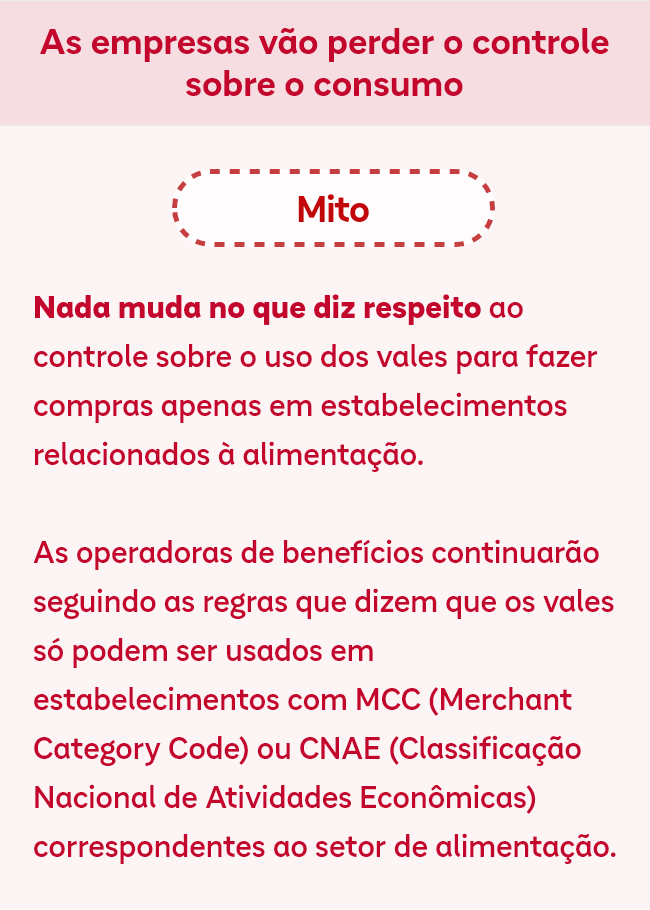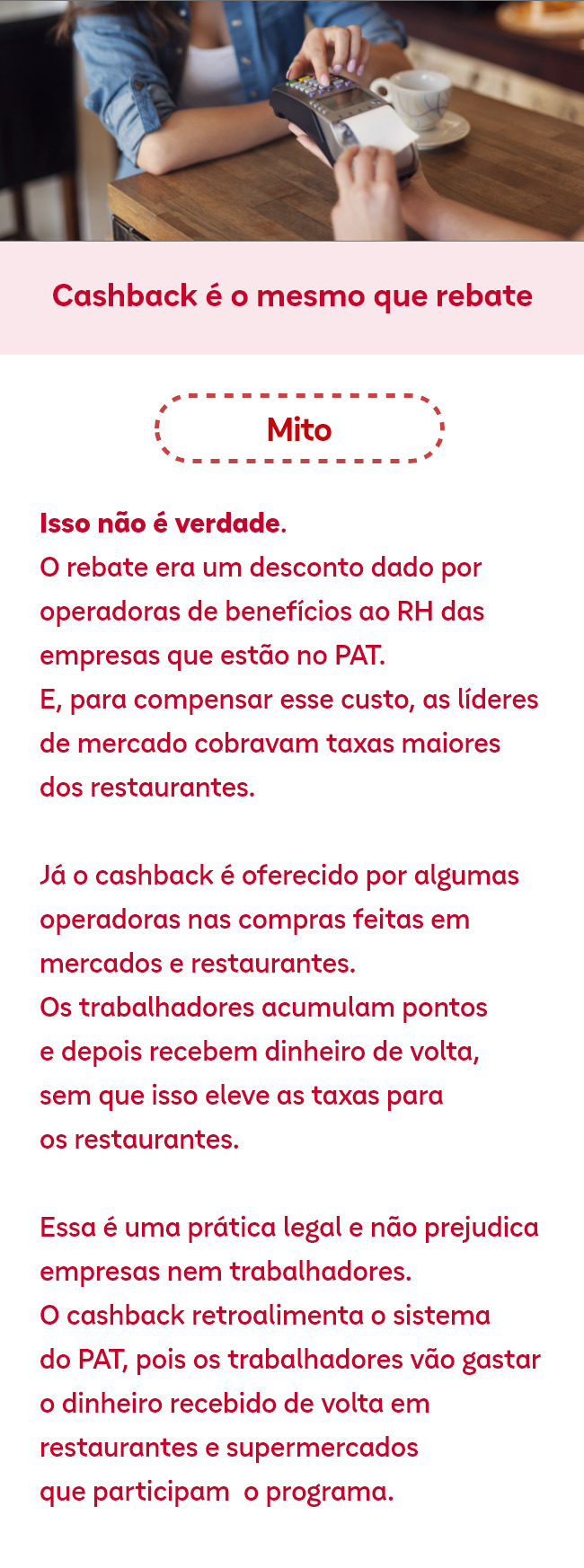One of the changes brought about by new PAT (Worker's Food Program) is the portability of the balance of food and meal vouchers. In practice, this means that workers will be able to choose the operator they prefer, even if it is different from that adopted by the company where they work.
This change has already been provided for by law, but it is not yet in effect. At the moment, portability is being regulated, that is, the necessary rules for its operation are being defined — which should occur until May 2024.
“Portability gives workers the power to choose the food and meal voucher operator of their preference”, says Luiz Fernando Uehara, legal manager from iFood.



Salary-like portability
While the operationalization of portability is being debated, some uncertainties arise about how it will work — and also some myths.
One of them is that companies will have more work to manage new contracts with benefit providers chosen by employees, which is not true.
Companies will not need to sign new contracts because the process will be similar to the one they already use to enable salary portability.
Today, employing companies have their account in a bank and employees migrate their salary to the bank of their choice, through a clearing house.
“In the case of food and meal vouchers, the company will only need to register with this chamber, which will direct the balance of the vouchers to the operator chosen by the workers”, explains João Sabino, director of public policies at iFood, about a possible model to be adopted for portability.
Companies maintain control over usage
Another myth is that companies will lose control over the correct use of the card, since vouchers should only be used for food. “All benefit operators follow PAT requirements, and one of them is the prohibition on using vouchers for anything other than food”, explains Luiz Fernando.
“Operators are able to block purchases from unauthorized establishments, such as construction materials. We filter by MCC, which is the product code on the brand, and by CNAE to know, for example, if it is a restaurant or market where payment is taking place”, he adds.
The use of the balance to pay for other services was also prohibited, with or without portability. “Regardless of migration to another operator, workers cannot use this balance on other services, such as leisure and mobility”, says Luiz Fernando.


